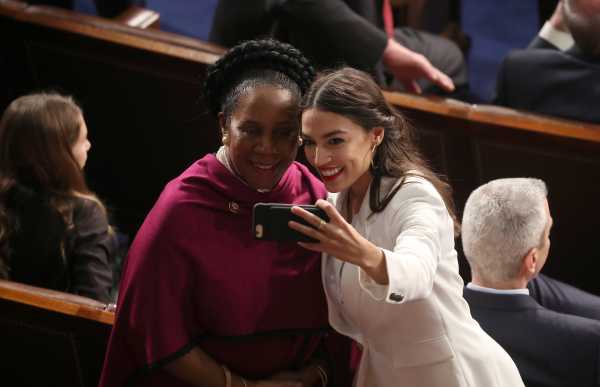
The American people would like to see higher taxes on the rich.
That’s not the impression you might get tuning into TV news, which covers the idea of raising taxes as a controversial, fringe idea — seen most recently when Rep. Alexandria Ocasio-Cortez floated the idea of a 70 percent top marginal rate in a 60 Minutes interview with Anderson Cooper.
CBS released that segment of the interview early, viewing it as a striking provocation that would drive coverage and build interest in the entire interview. And, indeed, CNN and Fox both picked up on the story immediately. A range of conservative figures pounced on a somewhat distorted account of what she proposed, and Cooper himself editorialized in the interview that her proposal was “radical.”
She’s undoubtedly pleased to attract so much coverage — typical House members struggle to get any attention at all for their policy ideas — but clearly part of the reason is that the people making programming decisions regard this idea as slightly loopy. Not coincidentally, television news anchors, higher-level producers of TV news shows, and the owners and executives of media companies tend to be rich. The donors and lobbyists and business executives who members of Congress spend time with tend to be rich.
The general public, meanwhile, keeps saying pretty clearly that the rich should be paying more — and certainly not less. Yet there’s never a news cycle dominated by coverage of the idea, for example, that some House Republican has the outlandish notion that rich people should have their taxes cut.
Americans want to tax the rich
There’s no polling on specific brackets or exactly who counts as rich that I can find, but surveys are very consistent that for some definition of rich the voters would like to see higher taxes:
- The most recent poll on this I can find is an April 2018 Gallup survey which had 62 percent of respondents saying the wealthy do not pay their fair share in taxes, a number that’s been consistently in the high 50s or low 60s in the 21st century.
- Pew found in 2017 that 60 percent of the public said it was bothered “a lot” by the fact that rich people don’t pay their fair share.
- A 2017 CBS poll found that 56 percent of voters said wealthy people should pay higher taxes.
By contrast, I can’t find any poll anywhere that supports the Republican position that high-income families’ tax burdens should be reduced. And these poll questions all offer a relatively unfavorable framing of the taxing the rich issue, since they don’t mention the additional tax revenue being used to provide any services or benefits.
One person who gets this, incidentally, is President Donald Trump.
Trump keeps pretending to want to tax the rich
Trump as a candidate promised to raise taxes on the rich, and after taking office he again promised to raise taxes on the rich. Trump said he believed in raising taxes on the wealthy, “including myself” and later promised that his administration’s tax reform would not benefit the wealthy at all.
None of this was true, of course — instead he backed a plan from congressional Republicans for a large regressive tax cut. Once that was enacted, House Republicans began to queue up a program they called Tax Reform 2.0 that would be an even larger and only modestly less regressive tax cut. Trump, again aware that this is not popular, tried to make up a fake middle-class tax cut during the waning days of the midterms, but as soon as the election was over the GOP stopped pretending they were going to do this.
This is all nonsense, but it’s telling nonsense.
Even very dishonest politicians don’t routinely pretend to hold the opposite of their party’s position on key issues. Trump isn’t out there pretending to champion abortion rights, clean energy, or humane treatment of refugees. He’s trying to muddy the waters on taxes because he knows the standard Republican position on tax policy is unpopular.
What’s interesting, though, is that press coverage rarely acknowledges the radicalism at work here. Not just right-wing bomb-throwers, but nerdy tax wonks like Rep. Kevin Brady (R-TX), moderates like Sen. Susan Collins (R-ME), vulnerable members like Rep. Will Hurd (R-TX) and Sen. Cory Gardner (R-CO) join the Freedom Caucus and everyone else in supporting the deeply unpopular view that rich people are overtaxed in what’s already one of the overall lowest-taxed developed countries.
Yet this is rarely covered as a striking, daring, or even noteworthy stance.
Sourse: breakingnews.ie
0.00 (0%) 0 votes


































